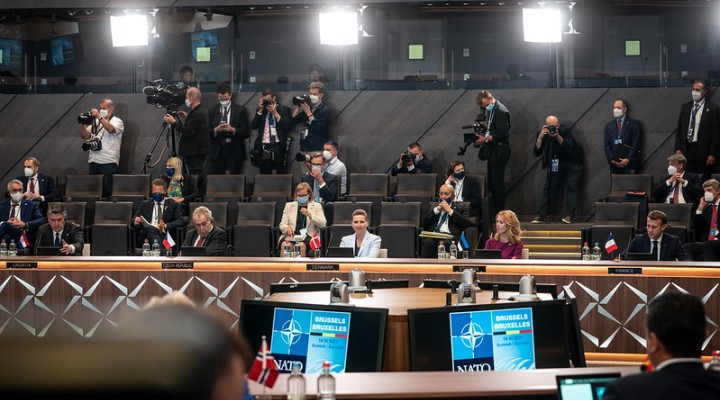NATO leaders decided to renew NATO’s Strategic Concept and the so-called promise for resilience at the Summit, according to which each country is committed to strengthening its primary line of defence, which is the continuity of the state and society.
‘Together, we reaffirmed the Allies’ commitment to NATO and collective defence, a strong transatlantic link. We face a number of challenges and threats that NATO is dealing with. These include Russia, terrorism, and climate change,’ said Prime Minister Kaja Kallas.
To ensure NATO’s technological superiority and leadership in the adoption of new technologies, the heads of state launched the Defence Innovation Accelerator for the North Atlantic and established the NATO Innovation Fund. ‘In an increasingly complex security environment, it is important to ensure NATO’s adaptability and its technological advantage,’ emphasised Prime Minister Kallas.
Although no meetings with NATO partners took place during the pandemic within the framework of the Brussels Summit, NATO leaders reaffirmed the importance of partnerships for the Alliance. ‘Finland, Sweden, Ukraine, Georgia, the European Union, as well as more distant partners who share the same values with us, are very important for NATO and we want to continue cooperation with them’, emphasised Prime Minister Kallas. ‘We reaffirmed that NATO’s Open Door Policy remains in place’, she added.
The Summit also discussed the situation in Ukraine, Belarus, and Afghanistan. The Allies expressed their strong support for Ukraine and also concern about the situation in Belarus. ‘NATO is monitoring the impact of the developments on NATO security’, noted Kaja Kallas. Although NATO’s mission in Afghanistan is nearing completion, NATO will continue to support Afghanistan through civilian means, the Allies confirmed.
Additional information:
Kersti Luha
+372-511-3893
kersti.luha@riigikantselei.ee
Photos: https://www.flickr.com/photos/stenbockimaja/albums/72157719411776871
